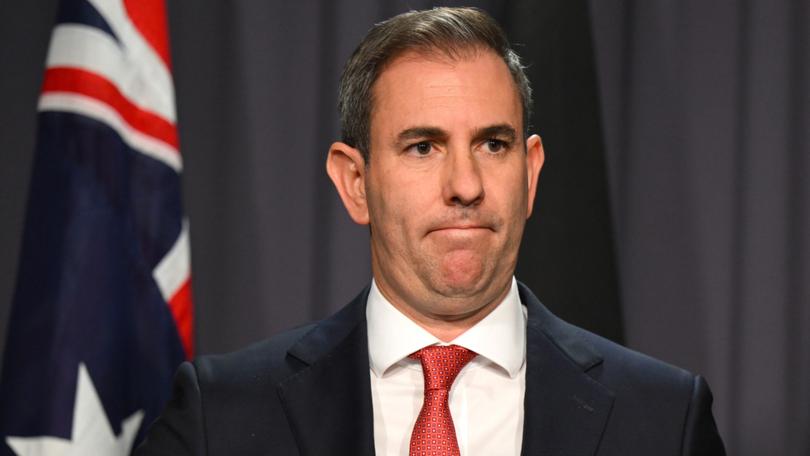Higher-for-longer inflation and interest rates to test Treasurer Jim Chalmers in last-ditch Budget preparation
The Treasurer always says he doesn’t second-guess decisions of the RBA, but there’s little doubt that its decisions will be in the back of his mind as he works to put the finishing touches on his next Budget.

Treasurer Jim Chalmers always says he does not second-guess or pre-empt decisions of the independent Reserve Bank, but there’s little doubt that its decisions will be in the back of his mind as he works to put the finishing touches on his next Budget.
With inflation proving sticky thanks to services like insurance, education and health, money markets have upped the prospect of the RBA’s next move on rates to be a hike. Though that is not expected at the next RBA meeting on May 6-7, and the likelihood of a hike is thought to be slim, economists are near-universally warning rates are likely to stay on hold for longer than expected.
This will increase pressure on Dr Chalmers who is already facing calls for greater cost-of-living relief as the squeeze on mortgaged and renting households continues, but economists are warning savings will have to be found somewhere for even slight Budget measures.
Sign up to The Nightly's newsletters.
Get the first look at the digital newspaper, curated daily stories and breaking headlines delivered to your inbox.
By continuing you agree to our Terms and Privacy Policy.Producer prices data on Friday shows the squeeze continuing — final demand excluding exports was up 0.9 per cent in the March quarter, the Australian Bureau of Statistics reported, and 4.3 per cent in the year. The main contributors were a 5.3 per cent increase in tertiary education, a 2.1 per cent spike in property due to fees linked to higher rents and materials and labour costs pushing non-residential construction 1.8 per cent higher.
This, combined with import prices falling 1.8 per cent over the quarter, and the Australian dollar in the same range for the past year suggests rising imported inflation is a problem for the RBA, AMP chief economist Shane Oliver said. Rather, inflation is homegrown and concentrated on services that are largely inescapable for many households.
“With inflation proving sticky the upcoming Budget should be focused on taking slightly more out of the economy than it puts in so as to bear down on inflation and make the RBA’s job easier,” Dr Oliver said. “There is room for cost-of-living relief and in particular a continuation of energy bill relief makes sense otherwise eligible households will face a rise in electricity bills, even though retail prices are falling.
“But any new spending needs to be more than offset by savings elsewhere.”
Monthly Federal Government statements for the year to March show an underlying cash deficit for the Federal Budget of $1.8 billion, compared to the $5.9b expected in the mid-year estimates.
The higher services input prices is consistent “with the RBA keeping rates high for longer”, Dr Oliver said, adding he now expects only one RBA rate cut late this year.
Westpac senior economist Pat Bustamante said given recent International Monetary Fund research suggesting a one percentage point increase in GDP added about half a percentage point to inflation in its first year, State and Federal Governments needed to consider budget options and proposals “against the backdrop of this easing in fiscal settings”.
“These (IMF) estimates are based on average responses over numerous cycles, however we are not in an average period,” he said. “The economy has slowed, the supply side of the economy is expanding as supply-chain disruptions dissipate and household incomes are being squeezed.
“This starting point is likely to dampen the inflation response.”
The inflation dilemma was highlighted by Commonwealth Bank economist Stephen Wu, who pointed out the consumer price index when housing and insurance and financial services were excluded had eased to 2.8 per cent. That’s a stark contrast to the 3.6 per cent otherwise.
“The key drivers of inflationary pressures in Australia are centred around parts of the CPI basket where consumer demand is less able to respond to higher prices,” Mr Wu said, adding eight of the top 10 contributors in the March quarter were non-discretionary items. The remaining two were tertiary education and domestic travel.
All this means Dr Chalmers’ balancing act is particularly fraught. Higher-for-longer inflation — particularly heading into an election year — will likely test the Government’s mettle to prove itself as responsible Budget managers versus sealing the political deal with sweeteners.
Originally published on The Nightly
